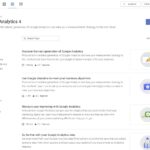Adults possess a remarkable capacity for learning, and embracing lifelong learning can lead to personal enrichment and professional advancement. At LEARNS.EDU.VN, we champion the belief that education is a continuous journey. This exploration will delve into the science-backed strategies and motivational factors that fuel adult learning, providing insights and tools to unlock your full potential and discover educational resources.
1. Understanding the Adult Learning Landscape
The adult learning landscape is a diverse and ever-evolving terrain shaped by a myriad of factors. Unlike traditional education models geared towards children and adolescents, adult learning recognizes and caters to the unique characteristics, motivations, and challenges that adults bring to the educational table. It is vital to first understand these facets to unlock the maximum potential from adult learners.
1.1. Andragogy: The Art and Science of Adult Learning
Andragogy, a term coined by Malcolm Knowles, distinguishes adult learning from pedagogy (child-centered learning). It emphasizes self-direction, experience, readiness to learn, and practical application. Understanding these principles is crucial for designing effective adult learning programs.
- Self-Concept: Adults prefer to be self-directed in their learning.
- Experience: Adults bring a wealth of experience to the learning environment, which can be a valuable resource.
- Readiness to Learn: Adults are more motivated to learn things that are relevant to their lives and careers.
- Orientation to Learning: Adults are problem-centered learners, preferring to learn things that can be applied to real-world situations.
- Motivation to Learn: Adults are motivated to learn by internal factors such as self-esteem, recognition, and quality of life.
1.2. The Power of Lifelong Learning
Lifelong learning is the ongoing, voluntary, and self-motivated pursuit of knowledge for either personal or professional reasons. It enhances social inclusion, active citizenship, personal development, self-sustainability, and competitiveness.
Benefits of Lifelong Learning
| Benefit | Description |
|---|---|
| Enhanced Skills | Continuously updating your skill set makes you more adaptable and valuable in the workforce. |
| Personal Growth | Learning new things can boost your confidence, broaden your horizons, and lead to a more fulfilling life. |
| Cognitive Health | Engaging in learning activities can help maintain cognitive function and reduce the risk of cognitive decline. |
| Career Advancement | Acquiring new skills and knowledge can open doors to new job opportunities and promotions. |
| Social Inclusion | Learning can connect you with others who share your interests and provide opportunities for social engagement. |
2. Overcoming Challenges in Adult Learning
Adults face unique challenges that can hinder their learning journey. Recognizing and addressing these obstacles is essential for fostering a supportive and effective learning environment.
2.1. Time Constraints
Many adults juggle work, family, and other responsibilities, making it difficult to find time for learning.
Strategies to Overcome Time Constraints
- Time Management: Prioritize learning and schedule dedicated study time.
- Flexible Learning Options: Opt for online courses, self-paced programs, or evening classes.
- Microlearning: Break down learning into small, manageable chunks that can be completed in short bursts.
- Integration: Find ways to integrate learning into your daily routine, such as listening to podcasts during your commute.
2.2. Fear of Failure
Some adults may be hesitant to return to learning due to past negative experiences or fear of not being able to keep up.
Strategies to Overcome Fear of Failure
- Start Small: Begin with a low-pressure course or topic that interests you.
- Focus on Progress: Celebrate small victories and focus on the progress you are making, rather than perfection.
- Seek Support: Join a study group or find a mentor who can provide encouragement and guidance.
- Reframe Failure: View setbacks as learning opportunities and a natural part of the learning process.
2.3. Lack of Confidence
Adults may doubt their ability to learn new things, especially if they have been out of school for a while.
Strategies to Boost Confidence
- Set Realistic Goals: Start with achievable goals and gradually increase the challenge as you gain confidence.
- Identify Strengths: Focus on your existing skills and knowledge and build upon them.
- Positive Self-Talk: Replace negative thoughts with positive affirmations.
- Celebrate Successes: Acknowledge and reward yourself for your accomplishments.
2.4. Financial Constraints
The cost of education and training can be a barrier for some adults.
Strategies to Address Financial Constraints
- Explore Affordable Options: Look for free online courses, community education programs, or employer-sponsored training.
- Scholarships and Grants: Research scholarship and grant opportunities for adult learners.
- Payment Plans: Inquire about payment plans or financial aid options from educational institutions.
- Invest in Yourself: View education as an investment in your future and consider the long-term benefits.
3. Optimizing Your Adult Learning Experience
To maximize the effectiveness of your learning efforts, consider these strategies:
3.1. Setting Clear Goals
Define what you want to achieve through learning. Are you looking to advance your career, develop a new skill, or simply expand your knowledge? Clear goals provide direction and motivation.
3.2. Creating a Supportive Learning Environment
Find a quiet, comfortable space where you can focus without distractions. Gather the necessary resources, such as books, articles, and online tools.
3.3. Using Effective Learning Strategies
Experiment with different learning techniques to find what works best for you. Some popular methods include:
- Active Recall: Testing yourself on the material you have learned.
- Spaced Repetition: Reviewing material at increasing intervals to improve retention.
- Interleaving: Mixing different subjects or topics to enhance understanding.
- Elaboration: Connecting new information to existing knowledge.
3.4. Staying Motivated
Learning can be challenging, so it is important to stay motivated. Here are some tips:
- Find Your “Why”: Remind yourself of the reasons why you are learning.
- Track Your Progress: Monitor your achievements and celebrate milestones.
- Connect with Others: Join a study group or online community to share your experiences and learn from others.
- Reward Yourself: Treat yourself to something you enjoy after completing a learning goal.
4. The Neuroscience of Adult Learning
The brain’s capacity for change, known as neuroplasticity, remains active throughout adulthood. This means that adults can continue to learn and adapt new skills and knowledge.
4.1. Neuroplasticity: The Brain’s Adaptability
Neuroplasticity refers to the brain’s ability to reorganize itself by forming new neural connections throughout life. This process allows the brain to compensate for injury and disease and to adjust its activities in response to new experiences or changes in the environment.
Factors Influencing Neuroplasticity
| Factor | Description |
|---|---|
| Learning and Experience | Engaging in new learning activities and experiences stimulates the formation of new neural connections. |
| Exercise | Physical activity increases blood flow to the brain and promotes the release of neurotrophic factors, which support the growth and survival of neurons. |
| Diet | A healthy diet rich in antioxidants and omega-3 fatty acids can protect the brain from damage and enhance cognitive function. |
| Sleep | Adequate sleep is essential for consolidating memories and allowing the brain to repair and regenerate. |
| Stress Management | Chronic stress can impair neuroplasticity and cognitive function. Practicing stress management techniques such as mindfulness meditation and yoga can help protect the brain. |
4.2. Cognitive Reserve: Building Resilience
Cognitive reserve refers to the brain’s ability to withstand the effects of aging and disease. Engaging in lifelong learning can help build cognitive reserve and protect against cognitive decline.
Activities to Enhance Cognitive Reserve
- Education: Pursuing formal education or taking courses on topics of interest.
- Mental Stimulation: Engaging in mentally challenging activities such as puzzles, games, and reading.
- Social Engagement: Maintaining strong social connections and participating in social activities.
- Physical Activity: Exercising regularly to improve blood flow to the brain and promote neuroplasticity.
5. Embracing Technology in Adult Learning
Technology has revolutionized the way adults learn, offering unprecedented access to information and learning opportunities.
5.1. Online Learning Platforms
Platforms like Coursera, edX, and Udacity offer a vast array of courses and programs from top universities and institutions around the world.
5.2. Mobile Learning
Mobile apps and devices make it possible to learn on the go, fitting learning into busy schedules.
5.3. Virtual Reality and Augmented Reality
These technologies offer immersive learning experiences that can enhance understanding and retention.
5.4. Artificial Intelligence
AI-powered tools can personalize learning experiences and provide tailored feedback and support.
6. Real-World Examples of Adult Learning Success
Numerous adults have successfully transformed their lives through learning.
6.1. Career Changes
Many adults have retrained and transitioned to new careers, finding greater fulfillment and financial stability.
6.2. Personal Enrichment
Adults have pursued learning for personal growth, exploring new hobbies, interests, and passions.
6.3. Community Engagement
Learning has empowered adults to become more active and engaged members of their communities, contributing their skills and knowledge to address local challenges.
7. The Role of Mindfulness in Adult Learning
Mindfulness meditation has been shown to improve focus, reduce stress, and enhance cognitive function. Studies suggest that adults with mild cognitive impairment can learn mindfulness meditation and improve their acceptance, self-efficacy, and social engagement.
7.1. Benefits of Mindfulness Meditation for Adult Learners
- Improved Focus: Mindfulness meditation can help adults improve their ability to focus and concentrate, making it easier to learn and retain information.
- Reduced Stress: Mindfulness meditation can help adults reduce stress and anxiety, creating a more relaxed and conducive learning environment.
- Enhanced Cognitive Function: Mindfulness meditation has been shown to improve cognitive function, including memory, attention, and executive function.
7.2. How to Incorporate Mindfulness into Your Learning Routine
- Start with Short Sessions: Begin with 5-10 minute sessions of mindfulness meditation and gradually increase the duration as you become more comfortable.
- Find a Quiet Space: Find a quiet, comfortable space where you can sit or lie down without distractions.
- Focus on Your Breath: Pay attention to the sensation of your breath as it enters and leaves your body.
- Acknowledge and Release Thoughts: As thoughts arise, acknowledge them without judgment and gently redirect your attention back to your breath.
- Practice Regularly: Aim to practice mindfulness meditation daily or several times a week to experience its full benefits.
8. Addressing Specific Learning Needs of Adults
Adults have diverse learning needs based on their age, background, and life experiences.
8.1. Learning for Seniors
Seniors can benefit from learning activities that promote cognitive health, social engagement, and personal fulfillment.
8.2. Learning for Working Professionals
Working professionals need learning opportunities that are flexible, relevant, and focused on developing skills that can be immediately applied in the workplace.
8.3. Learning for Parents
Parents can benefit from learning resources that help them support their children’s education and development.
9. Creating a Personalized Learning Plan
A personalized learning plan can help adults tailor their learning to their specific needs and goals.
9.1. Assessing Your Learning Style
Identify your preferred learning style, whether it is visual, auditory, kinesthetic, or a combination.
9.2. Identifying Your Strengths and Weaknesses
Recognize your existing skills and knowledge and identify areas where you need to improve.
9.3. Setting Realistic Goals
Set achievable goals that are aligned with your interests and aspirations.
9.4. Choosing the Right Resources
Select learning resources that are appropriate for your learning style and goals.
9.5. Tracking Your Progress
Monitor your achievements and make adjustments to your learning plan as needed.
10. The Future of Adult Learning
Adult learning is poised for continued growth and innovation, driven by technological advancements and changing societal needs.
10.1. Personalized Learning
AI-powered tools will enable more personalized learning experiences, tailored to individual needs and preferences.
10.2. Adaptive Learning
Adaptive learning platforms will adjust the difficulty and content of learning materials based on individual performance.
10.3. Immersive Learning
Virtual reality and augmented reality will create more immersive and engaging learning experiences.
10.4. Microlearning
Microlearning will become increasingly popular, offering bite-sized learning modules that can be completed in short bursts.
Adults undeniably can learn, and at LEARNS.EDU.VN, we provide a comprehensive suite of resources to support your lifelong learning journey. Whether you aspire to master a new skill, deepen your understanding of a specific subject, or explore effective learning strategies, we have something for everyone. Our platform offers detailed guides, proven learning methods, clear explanations of complex concepts, and curated resources—all designed to empower you. Dive into our articles and courses today to unlock your full potential. Contact us at 123 Education Way, Learnville, CA 90210, United States. Whatsapp: +1 555-555-1212. Visit our website at learns.edu.vn.
FAQ: Can Adults Learn?
1. Is it really possible for adults to learn new things effectively?
Yes, absolutely. Neuroplasticity, the brain’s ability to reorganize itself, continues throughout adulthood, allowing adults to learn and adapt.
2. What are some common challenges adults face when learning?
Common challenges include time constraints, fear of failure, lack of confidence, and financial limitations.
3. How can adults overcome time constraints to make time for learning?
Strategies include time management, flexible learning options, microlearning, and integrating learning into daily routines.
4. What can adults do to boost their confidence in their ability to learn?
Setting realistic goals, identifying strengths, positive self-talk, and celebrating successes can help boost confidence.
5. How does technology play a role in adult learning?
Technology offers access to online learning platforms, mobile learning, virtual reality, and AI-powered tools that personalize the learning experience.
6. What is the importance of setting clear goals in adult learning?
Clear goals provide direction and motivation, helping adults stay focused and achieve their desired outcomes.
7. How can mindfulness meditation benefit adult learners?
Mindfulness meditation can improve focus, reduce stress, and enhance cognitive function, creating a more conducive learning environment.
8. What is cognitive reserve, and how can it be enhanced through learning?
Cognitive reserve refers to the brain’s ability to withstand the effects of aging and disease. Engaging in lifelong learning can help build cognitive reserve.
9. Can you provide examples of how adults have successfully transformed their lives through learning?
Adults have successfully changed careers, pursued personal enrichment, and become more engaged in their communities through learning.
10. How is adult learning likely to evolve in the future?
The future of adult learning will involve personalized learning, adaptive learning, immersive learning, and microlearning, driven by technological advancements.
Alt Text: Diverse group of adults engaged in a collaborative learning session, emphasizing lifelong learning.
Alt Text: An individual studying on an online education platform, highlighting accessible learning resources for skill development.
 Mindfulness Meditation Benefits
Mindfulness Meditation Benefits

